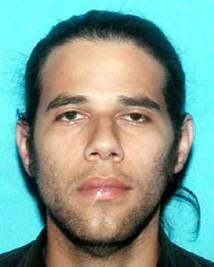The University of Idaho campus is littered with benches, especially near Hello Walk.
Inspirational phrases derived from the minds of writers and philosophers are etched into the stone resting places, offering students wisdom and respite.
But one bench southeast of the Administration Building stands out, memorializing rather than openly educating. Built in 2012, it bears the name “Katy Benoit” — a person many students might not remember.
Yet, others will never forget her or what happened seven years ago.

On Aug. 22, 2011, Benoit, a psychology graduate student, was shot 11 times by former UI professor Ernesto Bustamante with a .45 caliber handgun, according to court documents.
She was standing on the front porch of her Moscow home around 8:30 p.m., having stepped out for a cigarette only moments before she was murdered. Benoit died before police arrived.
The next day, Bustamante’s body was found in a room at the Best Western Plus University Inn. He had killed himself.

Katy Benoit
The pair had been romantically involved months prior, but Benoit ended the relationship in March of that year after he threatened her multiple times with a gun. She later filed a report against him with Moscow Police and the university in June.
Benoit’s complaint was one of several mounted against Bustamante, according to a UI report. Multiple evaluations claimed Bustamante often spoke inappropriately about violence during his classes and made sexual comments toward students.
He also had history of inappropriate relationships with students and had been warned by university officials to end such trysts.
Bustamante, who took medication for schizophrenia, bipolar disorder, anxiety and depression, soon resigned after Benoit came forward. His time at the university lasted around 4 years.
UI officials met with Benoit and said Bustamante would no longer be at the university and recommended she call the police if she felt threatened. She was killed later that day.
After Benoit’s death, Emilie McLarnan, director of the Violence Prevention Program, said the university made an agreement with Benoit’s family to honor her legacy at the beginning of each year with the Katy Benoit Safety Forum, which will be held in the Bruce Pitman Center at 7:30 p.m. Sept. 26.
“We’re at a point where few, if any, students would have known her. This was a tragedy that deeply shook many of us in the community,” McLarnan said. “There are difficult lessons to take away from an incident such as this, and we can’t let that fade away.”
McLarnan said the discussion serves as a reminder to students of university obligations and policies around issues of sexual and interpersonal violence.

Ernesto Bustamante
In conjunction with the safety forum, Bekah MillerMacPhee said UI’s annual Take Back the Night event 7:30 p.m. Thursday will also serve as an opportunity to honor Benoit and other survivors of these forms of abuse.
MillerMacPhee, program coordinator of the UI Women’s Center, said attendees will congregate at the Agriculture Science Building, walking past Benoit’s bench and up Sixth Street.
“There’s something really heartening and hopeful about being with 250 to 300 people who care,” she said. “It’s inspiring.”
Despite not being employed at UI during the time of Benoit’s death, MillerMacPhee and McLarnan said they felt the impact of the 22-year-old’s passing from a community standpoint.
Sexual and interpersonal violence, McLarnan said, is particularly pernicious because it so interwoven into the daily experience of too many individuals and can impact people on such a fundamental level, disrupting one’s education and life, in general.
“Everyone deserves to be safe in all aspects of their lives,” McLarnan said. “With rates like one in five women or one in 16 men being impacted by sexual assault, this is epidemic and we owe it to each other to bring these rates down.”
MillerMacPhee said she believes most people are aware of these types of violence, but they aren’t always knowledgeable about how often it occurs.
She said people also instinctually look for other explanations or scenarios rather than believing someone upfront, asking “Are you sure it wasn’t consensual?” or “Is that really abuse?”
“We need to understand that it can actually happen to anyone, and we need to keep that same understanding when it happens to someone right next to us,” MillerMacPhee said. “We can’t ask them to explain how it could happen when we intellectually know it happens too much already.
MillerMacPhee said she believes this doubt stems from a general avoidance of the topic on a societal level.
Often these crimes are carried out by someone known to — or trusted by — the survivor, making them more difficult to talk about, McLarnan said.
“The ripple effects of these crimes wash over us all. The power of just believing someone when they tell you they have been abused — just start by believing,” McLarnan said. “And work hard to respect the decisions of the survivor, whether they want to report or not, that healing is a journey and not always a linear one.”
Olivia Heersink can be reached at [email protected] or on Twitter @heersinkolivia
